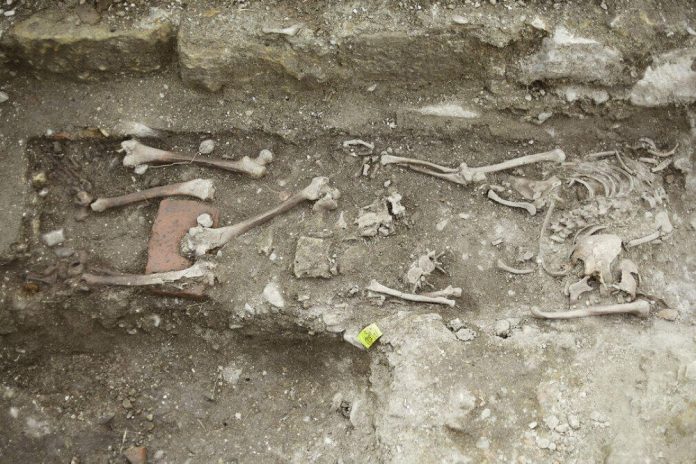Archaeologists, who conducted excavations in the Racheshi area in the east of Croatia, have found one of the most unusual burials, which casts doubt on the traditional idea of medieval burial practices. The remains of a man, ages 40-50, were buried with manipulations that testify to the special ideas of contemporaries about him. The head of the deceased was separated from the body, and the torso was laid in such a position that resembles a "vampire" burial. Could these manipulations testify to the belief that he could return from the dead?
This find was made under the floor of an ancient church, where archaeologists revealed a whole architectural complex containing 181 skeletal burial. Most of them corresponded to traditional funeral practices of the XV-XVI centuries, but several of them attract special attention because of their unusual features. Natasha Sharkich, an independent archaeologist who studied the remains, notes that manipulations with the body could be associated with belief in the supernatural forces. “The belief in vampires and evil spirits was kept even after Christianity is adopted in many Slavic countries. This burial, of course, testifies to the fear of the possibility of returning the deceased, ”the researcher comments.
According to the study, this man probably worked on heavy physical work and suffered numerous injuries during life. The last of them, a traumatic brain injury, caused his death. Scientists suggest that the place of his burial and manipulation with the body could be associated with the belief that this man could have caused misfortune if he was not "stopped" after death. During the excavations, large stones were also found at the head and legs of the deceased, which is another prompt that he could be perceived as a social exile or even dangerous to others. The fear of the other life and the possibility of returning the dead from the dead was characteristic of many European cultures of the Middle Ages, and this burial can be an important testimony to this.
In general, excavations in Rachayes provide valuable information for the study of ancient beliefs and practices that are manifested even in those funeral customs that seemed to be exposed to Christianity. The study of such finds allows you to better understand how people's beliefs and fears have influenced social and cultural processes in medieval Europe.


